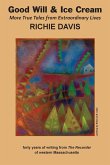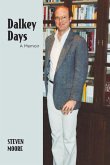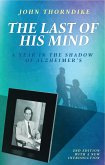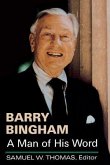15,99 €
inkl. MwSt.
Versandfertig in über 4 Wochen

8 °P sammeln
- Broschiertes Buch
- Merkliste
- Auf die Merkliste
- Bewerten Bewerten
- Teilen
- Produkt teilen
- Produkterinnerung
- Produkterinnerung
Exiled Russian journalist colorfully narrates his passage into dissent and his work on behalf of persecuted Christians in 1970s USSR.
Andere Kunden interessierten sich auch für
![Good Will & Ice Cream Good Will & Ice Cream]() Richie DavisGood Will & Ice Cream28,99 €
Richie DavisGood Will & Ice Cream28,99 €![Dalkey Days Dalkey Days]() Steven MooreDalkey Days12,99 €
Steven MooreDalkey Days12,99 €![The Last of His Mind, Second Edition The Last of His Mind, Second Edition]() John ThorndikeThe Last of His Mind, Second Edition15,99 €
John ThorndikeThe Last of His Mind, Second Edition15,99 €![Day by Day: The Chronicles of a Hard of Hearing Reporter Volume 7 Day by Day: The Chronicles of a Hard of Hearing Reporter Volume 7]() Elizabeth ThompsonDay by Day: The Chronicles of a Hard of Hearing Reporter Volume 728,99 €
Elizabeth ThompsonDay by Day: The Chronicles of a Hard of Hearing Reporter Volume 728,99 €![Barry Bingham Barry Bingham]() Barry BinghamBarry Bingham31,99 €
Barry BinghamBarry Bingham31,99 €![Pluck Pluck]() Donna MorrisseyPluck15,99 €
Donna MorrisseyPluck15,99 €![A Good Life A Good Life]() Ben BradleeA Good Life24,99 €
Ben BradleeA Good Life24,99 €-
-
-
Exiled Russian journalist colorfully narrates his passage into dissent and his work on behalf of persecuted Christians in 1970s USSR.
Hinweis: Dieser Artikel kann nur an eine deutsche Lieferadresse ausgeliefert werden.
Hinweis: Dieser Artikel kann nur an eine deutsche Lieferadresse ausgeliefert werden.
Produktdetails
- Produktdetails
- Verlag: Deirdre Braud
- Seitenzahl: 352
- Erscheinungstermin: 31. Juli 2018
- Englisch
- Abmessung: 213mm x 140mm x 25mm
- Gewicht: 408g
- ISBN-13: 9780998777078
- ISBN-10: 0998777072
- Artikelnr.: 48852204
- Herstellerkennzeichnung
- Libri GmbH
- Europaallee 1
- 36244 Bad Hersfeld
- gpsr@libri.de
- Verlag: Deirdre Braud
- Seitenzahl: 352
- Erscheinungstermin: 31. Juli 2018
- Englisch
- Abmessung: 213mm x 140mm x 25mm
- Gewicht: 408g
- ISBN-13: 9780998777078
- ISBN-10: 0998777072
- Artikelnr.: 48852204
- Herstellerkennzeichnung
- Libri GmbH
- Europaallee 1
- 36244 Bad Hersfeld
- gpsr@libri.de
Arkady Polishchuk (1935–2020) was a Russian Jewish dissident and former journalist who authored articles, essays, and satires for leading Russian periodicals, as well as two books about Africa. He also wrote two books in English, Dancing on Thin Ice (DoppelHouse 2018) and While I Was Burying Comrade Stalin (MacFarland 2020). His writings appeared in many publications in Europe and the United States including the National Review, Chicago Tribune, and Witness. Polishchuk was a broadcaster and correspondent for Radio Free Europe/Radio Liberty from 1985–2008 in Washington, D.C.; Munich; and Prague. For many years in Soviet Russian and later in the West, Polishchuk was heavily involved in human rights, including as a testimonial speaker for Amnesty International and working on behalf of 30,000 Russian Evangelicals trying to escape decades of persecution under communist rule. In 1981 he was awarded the British McWhirter Human Rights Foundation Award and, throughout his life, received numerous travel grants for his human rights activities as well as being covered by Life, the New York Times, Los Angeles Times, Nightline with Ted Koppel, and international publications. Polishchuk became a dissident in 1973 and spent several weeks in prison as part of a four-year campaign in support of Jewish and Christian emigration. When the Christian Emigration Movement was born after the Helsinki Accords in 1975, Polishchuk concentrated his human rights efforts on helping persecuted Christians – which included the dangerous smuggling of witness testimonies out of the USSR. Over several years he successfully petitioned for the right of Russian Evangelicals to emigrate and traveled to many European countries, to Canada and across the United States on their behalf. For two years he was the managing editor and spokesman for Door of Hope International, an Evangelical human rights organization focusing on religious persecution. He held an advanced degree in Philosophy from Moscow University. Some of his experiences as a dissident in Moscow were covered internationally, for example, in this article by the New York Times from October 20, 1976.
Prologue: A Prison for Hedonists 11
The Cliff Edge Where It All Began 36
The Life of the Blind 46
How to Become an Expert on Africa 67
What to Do If You Know Many Russian Spies 81
My Good Friends in the KGB 89
The Struggle for Purity in the Party Ranks 98
On the Horns of a Dilemma 108
The Unpredictable World of Dissent 118
The First Trial, December 1974 134
Different Courts Without a Difference 164
The Sweet Taste of Freedom 173
More Dangerous Than Jews 194
A Jewish Invasion of the Communist Sanctum 204
How to Catch an American Spy 214
The Assault on the American Embassy 222
In the Cultist's Lair 232
Send-offs of Various Kinds 262
New Life, Old Stars 270
Russian Jews, a Russian Tiger, and Some Other Russians 281
Phantoms of the Past in the Shadow of Skyscrapers 289
A Jew Who Spoke in Tongues 306
My Russian Habitat in California 317
Photographs and Documents 329
Index 343
Acknowledgments 351
The Cliff Edge Where It All Began 36
The Life of the Blind 46
How to Become an Expert on Africa 67
What to Do If You Know Many Russian Spies 81
My Good Friends in the KGB 89
The Struggle for Purity in the Party Ranks 98
On the Horns of a Dilemma 108
The Unpredictable World of Dissent 118
The First Trial, December 1974 134
Different Courts Without a Difference 164
The Sweet Taste of Freedom 173
More Dangerous Than Jews 194
A Jewish Invasion of the Communist Sanctum 204
How to Catch an American Spy 214
The Assault on the American Embassy 222
In the Cultist's Lair 232
Send-offs of Various Kinds 262
New Life, Old Stars 270
Russian Jews, a Russian Tiger, and Some Other Russians 281
Phantoms of the Past in the Shadow of Skyscrapers 289
A Jew Who Spoke in Tongues 306
My Russian Habitat in California 317
Photographs and Documents 329
Index 343
Acknowledgments 351
Prologue: A Prison for Hedonists 11
The Cliff Edge Where It All Began 36
The Life of the Blind 46
How to Become an Expert on Africa 67
What to Do If You Know Many Russian Spies 81
My Good Friends in the KGB 89
The Struggle for Purity in the Party Ranks 98
On the Horns of a Dilemma 108
The Unpredictable World of Dissent 118
The First Trial, December 1974 134
Different Courts Without a Difference 164
The Sweet Taste of Freedom 173
More Dangerous Than Jews 194
A Jewish Invasion of the Communist Sanctum 204
How to Catch an American Spy 214
The Assault on the American Embassy 222
In the Cultist's Lair 232
Send-offs of Various Kinds 262
New Life, Old Stars 270
Russian Jews, a Russian Tiger, and Some Other Russians 281
Phantoms of the Past in the Shadow of Skyscrapers 289
A Jew Who Spoke in Tongues 306
My Russian Habitat in California 317
Photographs and Documents 329
Index 343
Acknowledgments 351
The Cliff Edge Where It All Began 36
The Life of the Blind 46
How to Become an Expert on Africa 67
What to Do If You Know Many Russian Spies 81
My Good Friends in the KGB 89
The Struggle for Purity in the Party Ranks 98
On the Horns of a Dilemma 108
The Unpredictable World of Dissent 118
The First Trial, December 1974 134
Different Courts Without a Difference 164
The Sweet Taste of Freedom 173
More Dangerous Than Jews 194
A Jewish Invasion of the Communist Sanctum 204
How to Catch an American Spy 214
The Assault on the American Embassy 222
In the Cultist's Lair 232
Send-offs of Various Kinds 262
New Life, Old Stars 270
Russian Jews, a Russian Tiger, and Some Other Russians 281
Phantoms of the Past in the Shadow of Skyscrapers 289
A Jew Who Spoke in Tongues 306
My Russian Habitat in California 317
Photographs and Documents 329
Index 343
Acknowledgments 351







